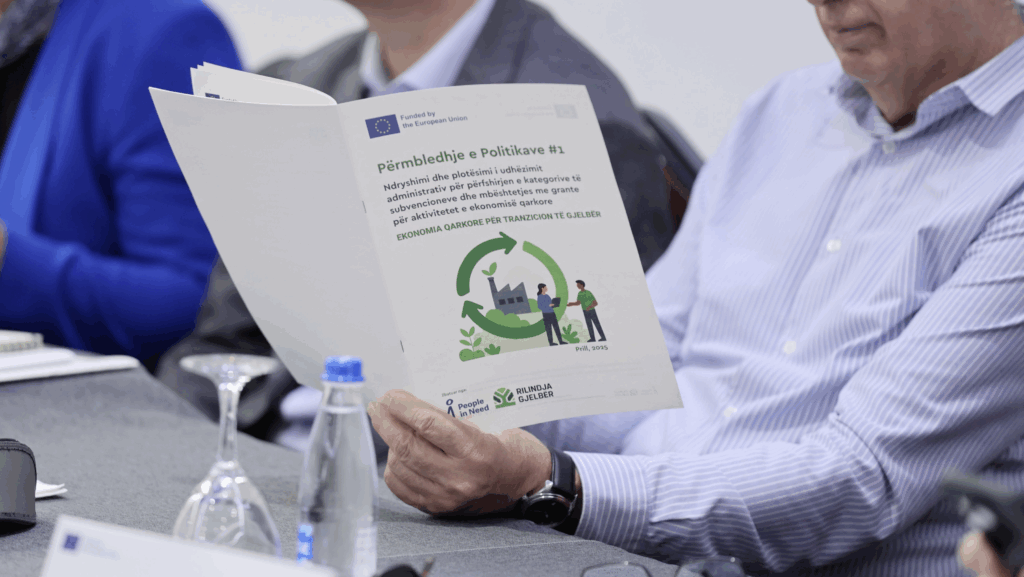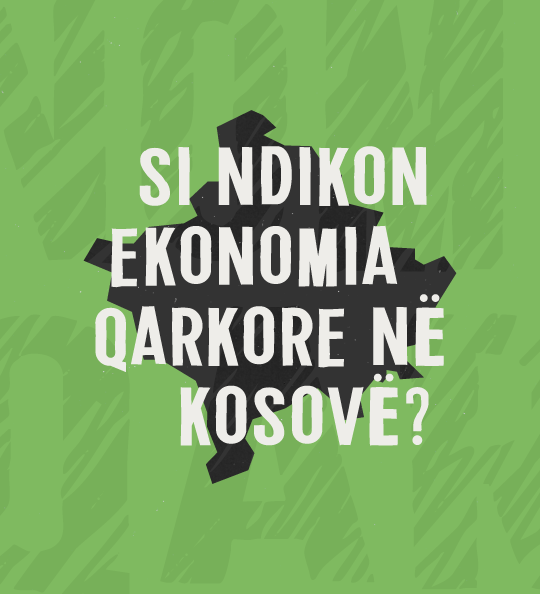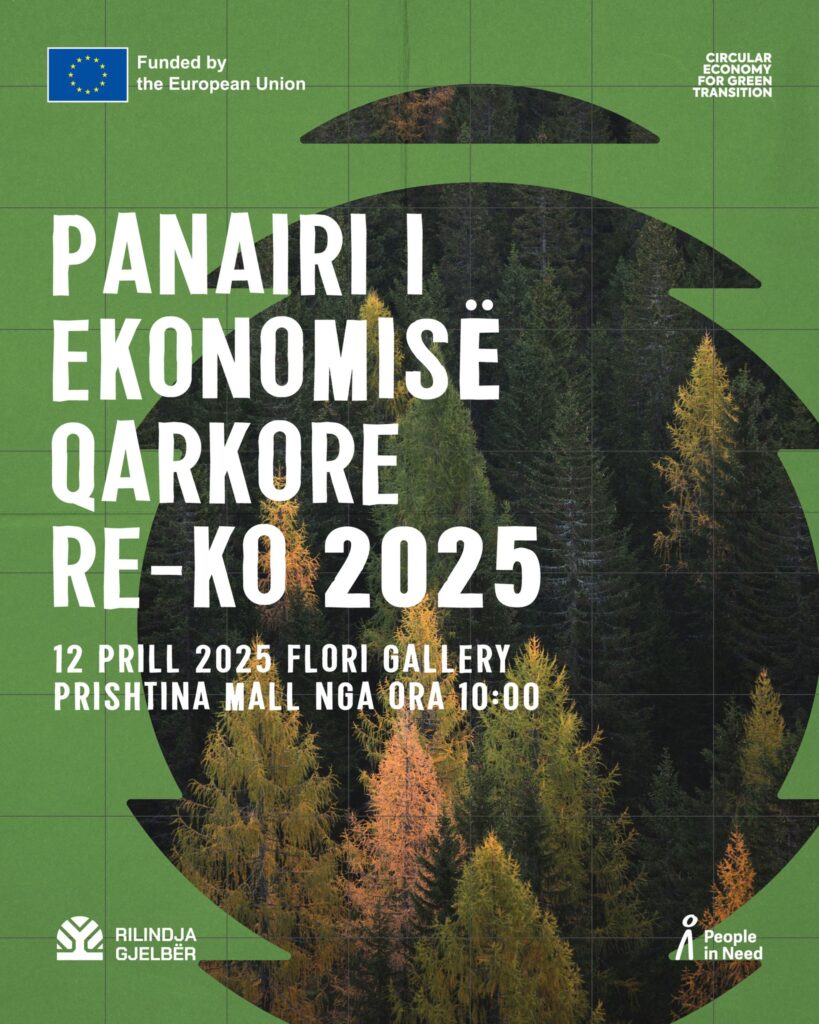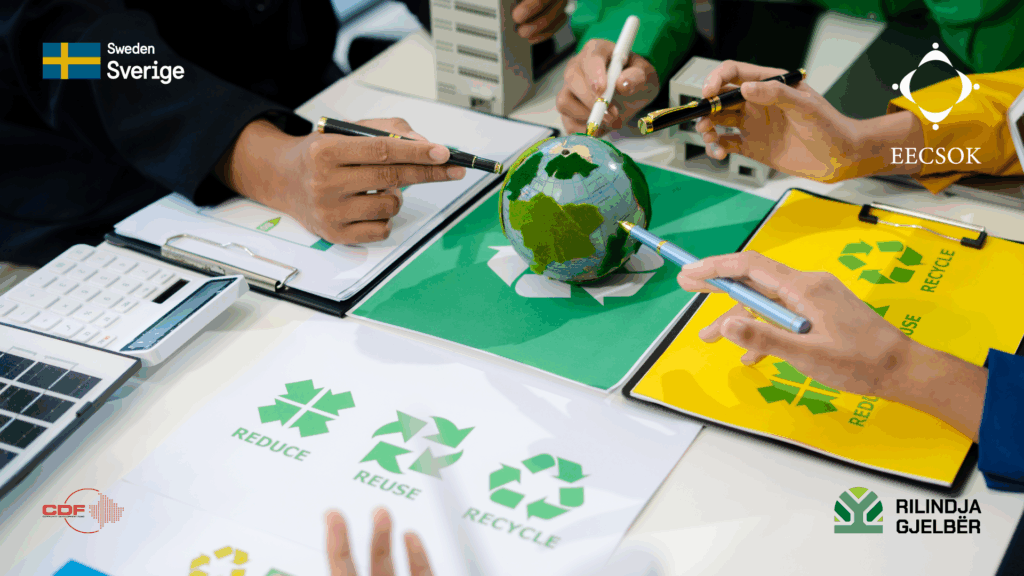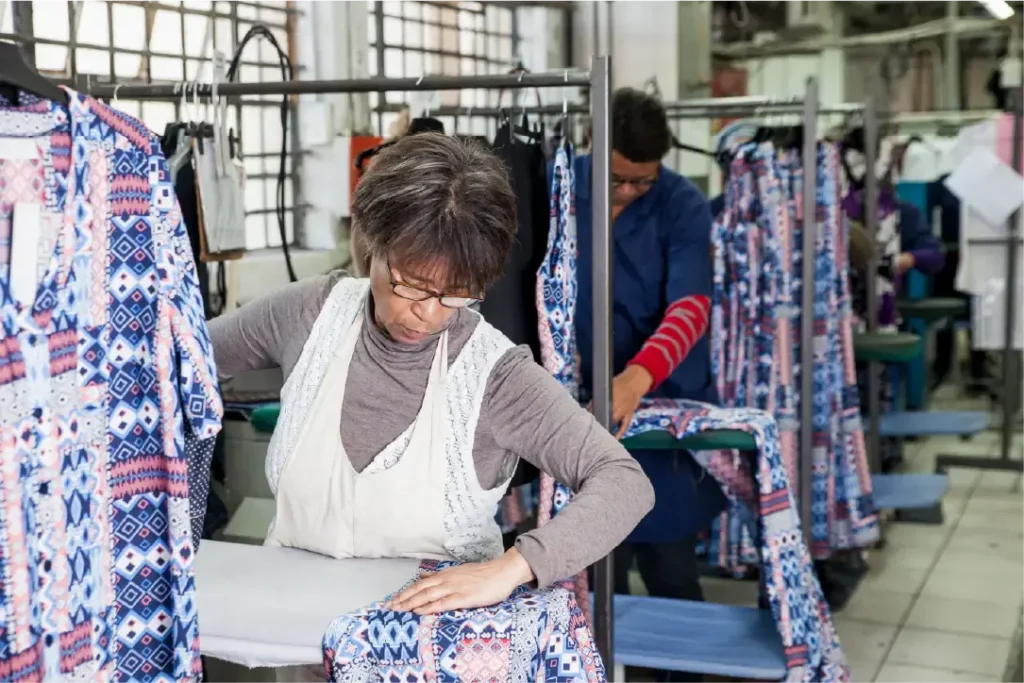Waste Management and Recycling as a Core of the Circular Economy in Kosovo
Introduction
Waste management is one of the most urgent environmental and economic challenges in Kosovo. With rapid urbanization, increased industrial activity, and growing consumer demand, the country faces a waste crisis where most waste ends up in landfills or illegal dumpsites, leading to pollution, resource depletion, and public health concerns.
The circular economy offers an opportunity to transform Kosovo’s waste management system into a model focused on resource recovery, where materials are reused, recycled, and reintegrated into the economy instead of being discarded. This approach not only reduces environmental damage but also creates economic opportunities, generates jobs, and promotes sustainable industries.
Recognizing the urgency of waste management reform, the Ministry of Environment, Spatial Planning, and Infrastructure (MESPI), in collaboration with the United Nations Development Programme (UNDP), has developed Kosovo’s Circular Economy Roadmap. This roadmap outlines strategic actions to enhance waste collection, recycling, and reuse practices, aiming to align Kosovo’s waste policies with EU environmental standards.
This article examines Kosovo’s current waste management challenges, the role of recycling in the circular economy, and key strategies to improve waste management while creating economic opportunities.
The Current State of Waste Management in Kosovo
Kosovo generates over 400,000 tons of municipal waste annually, yet most of it is not sorted, recycled, or processed properly. The country still relies heavily on landfills, many of which do not meet modern environmental standards. Illegal dumping and open burning of waste remain widespread problems, leading to air, soil, and water pollution, and exposing communities to serious health risks.
Key Challenges in Waste Management:
✅ Low Recycling Rates – Only 5-7% of municipal waste is recycled, a figure far below the EU average of 47%.
✅ Landfill Overload – The majority of waste ends up in landfills, many of which lack proper waste treatment and management facilities.
✅ Illegal Dumping and Waste Burning – Open dumping and the burning of plastic and other waste materials continue to release toxic pollutants into the environment.
✅ Lack of Waste Separation Infrastructure – There is no national waste separation system, making it difficult to efficiently recycle materials.
✅ Low Public Awareness and Engagement – Many people are not familiar with recycling practices or do not have access to proper waste disposal options.
The Consequences of Inefficient Waste Management:
- Landfills are filling up faster than expected, increasing pressure on waste management authorities and posing a severe environmental risk.
- Valuable materials like plastic, metal, glass, and paper are wasted instead of being collected, sorted, and reintegrated into the economy.
- The economy loses potential job opportunities in waste collection, recycling, and green manufacturing.
- Pollution from waste mismanagement contributes to climate change, affecting air quality, water sources, and biodiversity.
Kosovo’s Integrated Waste Management Strategy (2021-2030) outlines urgent reforms, investment in modern waste management infrastructure, and stricter enforcement of regulations to ensure compliance with EU waste standards and create a more sustainable future.
The Role of Recycling in the Circular Economy
Recycling is one of the key pillars of the circular economy, shifting waste from a linear “take-make-dispose” model to a regenerative system where materials remain in use for as long as possible. Instead of extracting new raw materials, which contributes to deforestation, mining pollution, and greenhouse gas emissions, recycling allows existing materials to be collected, processed, and reused.
Benefits of Recycling for Kosovo’s Economy and Environment
♻️ Reduces Landfill Dependency – Recycling diverts waste away from landfills, reducing environmental hazards and extending landfill lifespans.
♻️ Conserves Natural Resources – Recycling helps preserve raw materials such as metals, paper, and plastics, lowering Kosovo’s dependency on imports.
♻️ Creates Green Jobs – The recycling sector has the potential to create thousands of jobs, including in waste collection, sorting, processing, and remanufacturing.
♻️ Lowers Carbon Emissions – Recycling reduces CO₂ emissions by minimizing the need for raw material extraction and energy-intensive manufacturing.
Kosovo has the potential to significantly boost its recycling industry by adopting modern recycling technologies, improving waste separation systems, and supporting businesses that invest in sustainable waste management solutions.
Key Strategies to Improve Waste Management in Kosovo
To achieve a modern and efficient waste management system, Kosovo must implement structural changes in waste collection, recycling, and disposal. Several measures can enhance sustainability, reduce environmental impact, and drive economic growth.
- Implementing a Nationwide Waste Separation System
Currently, Kosovo lacks an organized system for separating recyclable materials from general waste. Establishing a national waste separation program would:
- Require households and businesses to sort waste (organic, recyclable, hazardous).
- Ensure proper waste collection points with clearly labeled bins for plastic, glass, metal, and organic waste.
- Increase efficiency in waste processing centers, reducing landfill waste.
- Expanding Recycling Infrastructure and Investments
Kosovo’s recycling facilities lack capacity and modern technology. To scale up recycling efforts, the government must:
- Invest in new recycling plants capable of processing plastics, metals, e-waste, and organic waste.
- Encourage public-private partnerships to drive investments in waste management innovation.
- Provide financial incentives for businesses that implement recycling and circular economy practices.
- Enforcing Stronger Waste Regulations and Penalties
Illegal dumping and the open burning of waste continue due to weak enforcement of waste laws. Stronger penalties and increased inspections would:
- Discourage businesses and individuals from illegally dumping waste.
- Ensure waste disposal sites meet environmental standards.
- Promote corporate responsibility, requiring industries to manage and recycle their waste efficiently.
- Raising Public Awareness and Community Engagement
Many citizens are unaware of recycling benefits or lack access to recycling facilities. A strong education and awareness campaign could:
- Teach communities how to separate waste and use recycling facilities.
- Encourage local waste management initiatives, such as community recycling programs.
- Promote a culture of environmental responsibility, making sustainability a shared goal for all citizens.
- Encouraging Waste-to-Energy Solutions
Instead of landfilling waste, Kosovo could explore waste-to-energy technologies, which convert non-recyclable waste into electricity and heat. This approach:
- Reduces landfill dependency.
- Provides an alternative energy source, reducing reliance on fossil fuels.
- Lowers greenhouse gas emissions from decomposing waste.
Conclusion: A Call to Action for a Cleaner Kosovo
Kosovo has an opportunity to transform its waste management system by embracing circular economy principles. Investing in recycling infrastructure, improving waste collection, enforcing stricter waste laws, and raising public awareness can lead to a cleaner environment and a stronger green economy.
How You Can Help
✅ Separate your waste at home and work.
✅ Support businesses that implement recycling programs.
✅ Reduce single-use plastics and opt for reusable products.
✅ Participate in community clean-up events and waste management initiatives.
✅ Educate others on the importance of recycling and responsible waste disposal.
By working together—government, businesses, and citizens—Kosovo can reduce waste, improve recycling rates, and create a more sustainable future.
♻️ A cleaner, greener Kosovo starts with you! 🌍💚

